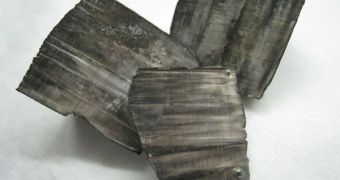Bolivia has currently the largest lithium reserves in the world, approximately half of the total supplies in terms of quantity. This makes the country extremely important for the outside world, on account of the fact that the mineral is highly precious for the battery industry, as well as for the development of electric and hybrid cars. President Evo Morales has already nationalized the oil and natural gas industries in the country, and now a growing nationalist feeling emanating from the general population could prompt the head of state to do the same with the lithium fields.
Japan and Europe had previously attempted to strike deals with the Bolivian government in the past that would have allowed them to start tapping the resource, but thus far to little results. In addition to this fact, president Morales is an ardent opponent of the United States, and has vowed never to collaborate with the country during his presidency. Furthermore, the modifications he recently made to the Constitution made it possible for locals in the region to oppose companies they did not want to have on their land, and also to claim parts of the profit of any enterprise that was allowed there.
“There are salt lakes in Chile and Argentina, and a promising lithium deposit in Tibet, but the prize is clearly in Bolivia. If we want to be a force in the next wave of automobiles and the batteries that power them, then we must be here,” Mitsubishi’s Base Metals Unit executive, Oji Baba, says. General Motors, Nissan, Ford and BMW are just a few of the car manufacturers that have ongoing projects related to the development of hybrid vehicles, which they will not be able to complete due to these restrictions.
According to a United States Geological Survey, the reserves in Bolivia amount to 5.4 million tons, which could potentially fuel the entire auto and battery industries for the next several decades. Chile has only about 3 million tons of the mineral, China boasts 1.1 million tons, while the US lags last on the list of great producers, with only 410,000 tons available.
“The previous imperialist model of exploitation of our natural resources will never be repeated in Bolivia. Maybe there could be the possibility of foreigners accepted as minority partners, or better yet, as our clients,” head of division in Comibol, which oversees the lithium extraction, Saul Villegas adds.

 14 DAY TRIAL //
14 DAY TRIAL //